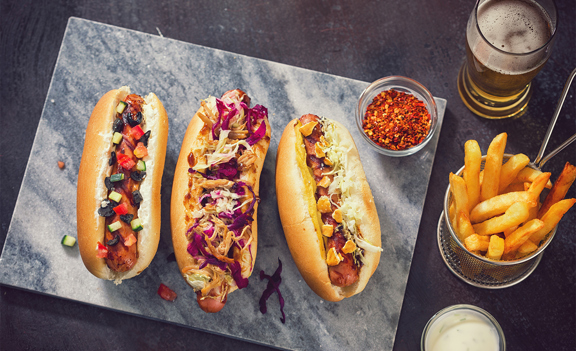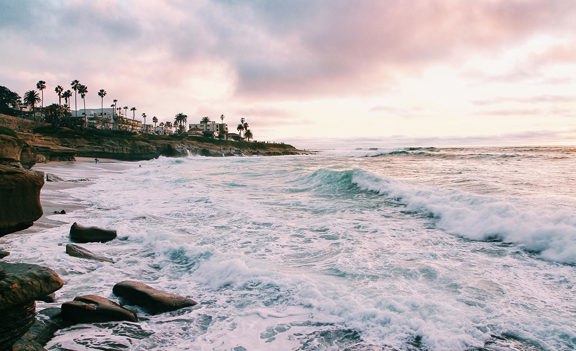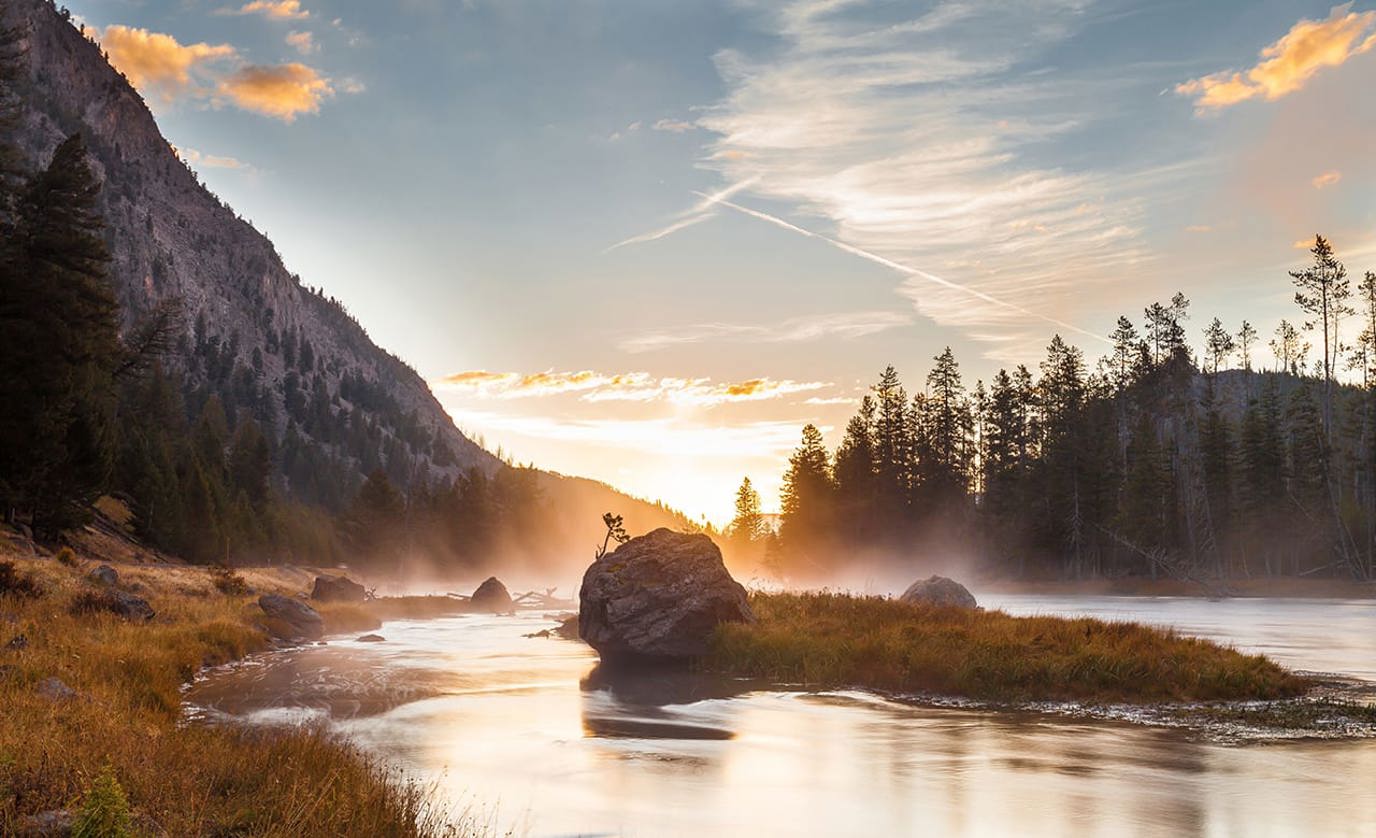
What is Wellness Tourism? (How an RV Trip Can Help)
- RV Lifestyle
- get inspired
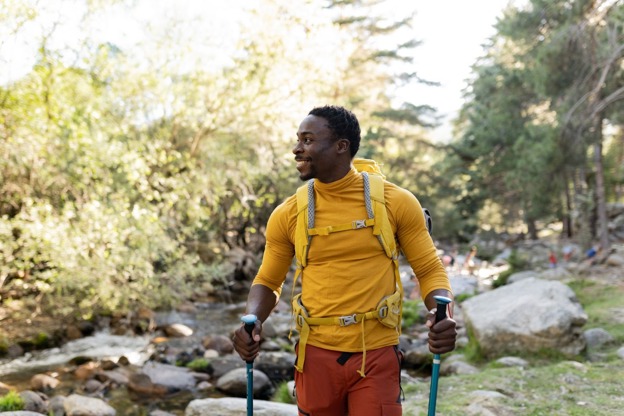
In recent years, wellness tourism has emerged as one of the fastest-growing segments of the global travel industry, offering a refreshing alternative to traditional vacations. Rather than focusing on sightseeing alone, wellness travelers are intentionally seeking experiences that restore their mental and physical health, nurture emotional well-being, and promote a healthy lifestyle.
According to the Global Wellness Institute (GWI), the wellness economy reached a new peak of $6.3 trillion in 2023—representing over 6 % of global GDP.
What makes this shift noteworthy is how wellness travel is continuing to gain traction: in 2023 wellness-related trips accounted for about 7.8 % of all tourism trips globally but represented a much larger share—17.9 %—of total tourism spending. This means that wellness tourists aren’t just taking more trips—they’re spending more on each trip because they’re seeking richer, more intentional experiences.
Unlike medical tourism, which is often driven by the need for treatment or procedures, wellness tourism is centered on prevention, lifestyle enhancement, and holistic well-being. It’s about journeying toward better health—not simply escaping from life.
That’s where an RV adventure fits in beautifully. Imagine waking up beside a quiet lake, brewing coffee as the sun rises over mountain peaks, doing yoga wherever you make camp, and soaking up fresh air, forest trails, and mealtime recipes made with local produce. On such a road trip, your mobile lodging becomes a moving retreat—one that offers flexibility, deep immersion in nature, a feeling of freedom, and a meaningful way to support your total health.
For many — especially health-conscious travelers, families looking for meaningful bonds, or those simply in need of a reset — this kind of journey goes beyond vacation. It becomes a wellness journey. With your RV as your basecamp, you’re not just traveling; you’re integrating movement, mindfulness, connection, and restorative downtime into the miles you cover.
What Is Wellness Tourism? (And How It Differs from Medical Tourism)

At its core, wellness tourism is travel associated with maintaining or enhancing one’s personal well-being, rather than addressing illness or medical concerns. While medical tourism focuses on traveling to receive treatment—such as surgeries, dental work, or specialized medical procedures—wellness travel is about prevention, balance, and holistic health.
The difference between health tourism and wellness tourism comes down to intention. Medical tourists travel to fix a condition, while wellness tourists travel to maintain health, reduce stress, and reconnect with themselves. These travelers seek restorative activities such as yoga classes, meditation retreats, spa treatments, fitness programs, and nutritious meals that support a healthy lifestyle.
The wellness tourism industry encompasses both primary wellness travelers, who choose destinations specifically for wellness experiences, and secondary wellness travelers, who add wellness elements—like hiking, healthy dining, or mindfulness—to a trip primarily taken for leisure or business. Whether it’s soaking in natural hot springs in Colorado, hiking the Pacific Northwest, or meditating on a quiet beach, wellness travel invites people to slow down, breathe, and appreciate the journey.
In this way, wellness tourism bridges adventure and mindfulness—it’s not just about seeing the world but feeling better as you explore it. And for those seeking both freedom and self-care, the RV lifestyle offers one of the most flexible and fulfilling ways to experience that balance.
The Core of Wellness Tourism Experiences
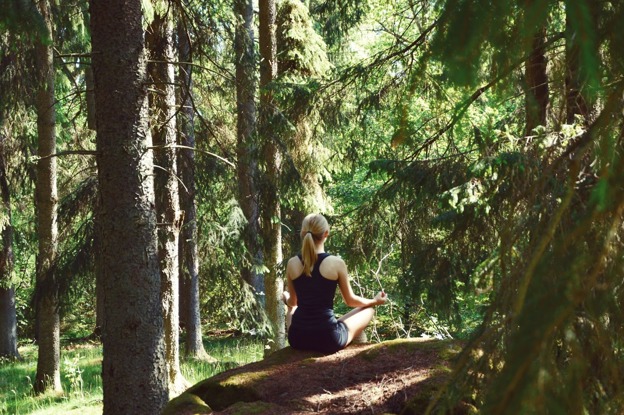
At the heart of wellness tourism lies the desire to reconnect — with yourself, with nature, and with the world around you. Unlike traditional travel, where the goal is often to check off destinations, wellness tourism is centered around experiences that slow you down and immerse yourself in restorative, rejuvenating environments.
1. Mindfulness and Mental Well-Being
For many wellness travelers, the journey begins with mental health. Modern life can feel fast-paced and overstimulating, and travel becomes an antidote to burnout. Practices like meditation, journaling, and tia chi can transform an ordinary road trip into a wellness journey. Many travelers seek yoga and meditation retreats, wellness resorts, or simply moments of solitude in nature to quiet the mind.
RV travel, in particular, supports mindfulness by encouraging slower, intentional movement. Each stop becomes a chance to breathe deeply, observe beautiful scenery, and embrace the healing power of the outdoors.
2. Physical Health and Active Exploration
Physical fitness is another cornerstone of wellness tourism. Activities like hiking, cycling, kayaking, or swimming allow travelers to move their bodies while soaking in stunning landscapes. Wellness travelers often blend fitness classes or exercise plans with outdoor adventures, turning each day into an opportunity to enhance one’s personal wellbeing.
An RV road trip complements this perfectly, offering the flexibility to chase new trails, mountain summits, or lakeside runs. You can easily adjust your route to include national parks, nature reserves, or wellness-oriented campgrounds.
3. Nutrition and Nourishment
Eating clean is fundamental to any wellness focused trip. Instead of relying on fast food, many travelers prioritize healthy eating and nutritious meals that fuel both body and mind. RVs make it simple to cook fresh, wholesome dishes — whether you’re grilling local fish by the coast or preparing farm-to-table ingredients from farmers' markets.
This connection to local culture is part of what makes wellness tourism so meaningful. Exploring regional culinary traditions provides an authentic way to experience wellness through flavor and community.
4. Connection and Emotional Health
True wellness involves relationships — both internal and external. Traveling with family or close friends in an RV allows for shared moments of laughter, reflection, and togetherness. Many wellness travelers find that time away from daily routines helps them reconnect with loved ones and rediscover gratitude.
Whether you’re watching the sunset in the desert or stargazing in a quiet forest, the emotional health benefits of being present — together — are profound.
Wellness Practices and Experiences to Try on the Road

One of the best things about wellness tourism is that it doesn’t require a luxury spa or resort stay — it’s about creating small, intentional moments of self-care wherever your travels take you. When you’re exploring in an RV, you can weave healthy practices naturally into your journey, turning every day on the road into an opportunity for renewal.
1. Morning Mindfulness Routines
Start your day with peace and clarity. Brew a cup of coffee or tea, find a scenic spot near your campsite, and take a few minutes to breathe deeply or meditate. Even five minutes of stillness can reduce stress and set a calm tone for your trip. Apps or audio guides can help you ease into meditation retreats from the comfort of your RV, no schedule required.
2. Outdoor Movement and Exercise
Staying active is key to maintaining physical health on the road. Swap the treadmill for a forest trail or beach walk. Try hiking, biking, or paddleboarding to keep your body moving while soaking in nature’s beauty. Many travelers also pack lightweight gear for yoga or fitness classes, making it easy to stretch and recharge after long drives.
3. Nutritious Meals on the Go
Food is fuel for both body and mind. Instead of relying on roadside diners, stock your RV kitchen with healthy ingredients — fresh fruits, vegetables, grains, and lean proteins. Cooking in your own space allows you to control what you eat while exploring local culture through fresh markets and regional flavors.
4. Digital Detox and Mental Recharge
A major benefit of the RV lifestyle is the chance to disconnect from constant notifications. Power down your devices, step outside, and enjoy the quiet. This digital detox can dramatically improve mental well-being, helping you feel more grounded and connected to what life is truly about.
5. Sleep and Recovery
Sleep often gets overlooked in travel plans, yet it’s one of the most powerful wellness routines you can maintain. The cozy setup of the RV and the sound of nature outside can create the perfect environment for rest. Keep a consistent sleep schedule, bring comfortable bedding, and make your RV feel like a true sanctuary.
Together, these small habits create a complete wellness journey, proving that the road itself can be one of the most restorative places you’ll ever travel.
Why RV Travel Is Perfect for Wellness Tourism
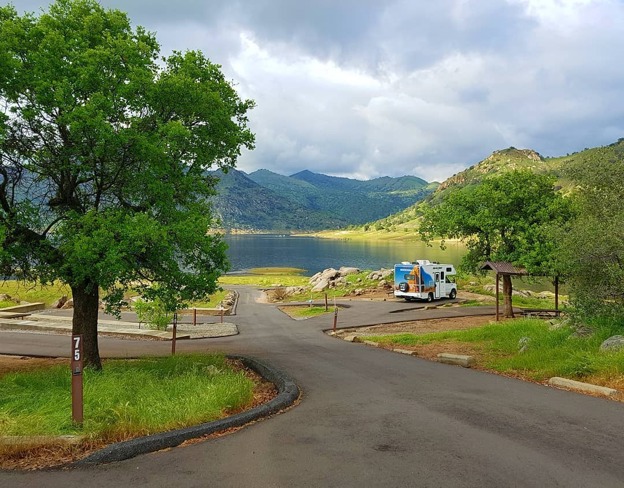
RV travel and wellness tourism go hand in hand — both are rooted in freedom, connection, and balance. For travelers seeking wellness experiences, an RV provides the flexibility to explore at your own pace, immerse yourself in nature, and maintain the comforts that support your physical and mental health.
1. Freedom to Choose Your Environment
Unlike traditional health tourism or wellness resorts, RV travel lets you decide exactly where and how you want to rejuvenate. You can spend one night parked by a quiet lake, another near a mountain trail, and the next along the ocean. Whether you’re chasing sunshine, solitude, or scenic backdrops, you’re in complete control of your surroundings.
2. Comforts of Home on the Road
An RV combines mobility with comfort, allowing you to maintain your wellness routines even while traveling. With a bed that’s your own, a capable kitchen for preparing meals, and the ability to bring along fitness gear, your RV becomes a wellness on wheels hub. Unlike hotel or Airbnb stays, you never have to compromise on sleep quality, diet, or privacy.
3. Access to Nature and Outdoor Healing
Nature has a proven healing power—reducing stress, lowering blood pressure, and improving emotional peace. Traveling by RV means that parks, forests, beaches, and mountains are always within reach. Whether you’re meditating at sunrise, hiking under the midnight sun, or studying stars before bed, RV travel keeps you close to the natural environments that foster spiritual well-being and renewal.
4. Reduced Stress and Simplified Logistics
Planning travel can sometimes feel overwhelming, especially for those seeking relaxation. RVs eliminate much of that stress. No rushing to catch flights, checking in and out of hotels, or packing and unpacking at each stop. You bring your entire setup with you, making the experience smoother and more mindful from start to finish.
5. Connection and Community on the Road
RV travel is also deeply social. Many travelers report forming lasting friendships at RV parks, campgrounds, and the random stops along any road trip. Sharing stories around a campfire or joining local yoga sessions on the beach creates a sense of community and belonging that enhances emotional happiness.
In many ways, RVing represents the purest form of wellness travel — slow, intentional, and centered on what truly matters: peace of mind, connection, and a sense of purpose along the journey.
Tips for Planning Your Own Wellness RV Trip

A successful wellness RV trip doesn’t require a rigid itinerary — just thoughtful preparation that allows you to relax and fully immerse yourself in the experience. Whether you’re traveling solo, with a partner, or with family, these practical steps can help you plan a journey that restores your mind, body, and spirit.
1. Choose the Right Destination for Your Wellness Goals
Start by identifying what type of wellness experiences you’re seeking. Are you craving peaceful solitude in nature, or a mix of adventure and reflection? For meditation and yoga, destinations like Sedona, Arizona or Big Sur, California offer serene landscapes and alone time. If you want outdoor activity, consider national parks such as Yellowstone or Zion, where hiking and nature observation go hand-in-hand.
2. Plan a Balanced Itinerary
Wellness travel is about balance. Mix relaxing days with activities that challenge and inspire you. For example, schedule a morning hike followed by an afternoon spa visit, or alternate between sightseeing and mindful rest days reading a good book. Remember: a wellness journey should restore your energy, not deplete it, so don't overextend yourself.
3. Pack Intentionally for Health and Comfort
Bring items that help you maintain your wellness goals on the road — a yoga mat, reusable water bottles, herbal teas, resistance bands, essential oils, and comfortable bedding. Stock your RV kitchen with fresh ingredients for healthy eating, and keep snacks that promote sustained energy during your trip.
4. Disconnect to Reconnect
Use this opportunity to take a break from screens and social media. Limit phone time and enjoy the simplicity of the open road. A digital detox can improve mental well-being and help you reconnect with your surroundings and traveling companions.
5. Incorporate Mindfulness into Everyday Moments
Even routine activities like making breakfast or setting up camp can be opportunities for mindfulness. Pay attention to your senses — the sound of birds in the morning, the smell of coffee, the feel of the cool air at dawn. These small practices help you stay present and deepen the sense of gratitude that fuels lasting well-being.
Embracing Local Culture and Connection on the Road

While wellness travel often focuses on self-care and personal rejuvenation, true well-being also comes from connection — to people, places, and culture. One of the most rewarding parts of an RV trip is the opportunity to move beyond the surface of travel and experience the heart of local communities.
1. Slowing Down to Connect
Unlike fast-paced tours or flights between cities, RV travel encourages a slower, more mindful rhythm. When you take your time exploring a region, you notice the details that make it special — from small-town festivals and roadside farmers’ markets to local art galleries and community yoga sessions. This slower pace naturally fosters deeper appreciation and genuine connection.
2. Sharing Food and Stories
Food is a universal language, and sampling regional dishes is one of the simplest ways to experience local culture. Whether you’re enjoying fresh-caught seafood on the Kenai Peninsula, visiting a local food truck park in Austin, or tasting homemade pies from a family-run diner in Vermont, these moments create meaningful memories.
3. Participating in Local Wellness Offerings
Many towns offer unique wellness experiences tied to their traditions — hot springs in Colorado, forest bathing walks in Oregon, or community meditation retreats in California. Joining these activities allows travelers to meet local residents, learn new wellness practices, and exchange stories that enrich both body and soul.
4. Building Community on the Road
RV travelers often form connections not only with locals but with other adventurers they meet along the way. Campgrounds and RV parks naturally bring people together — whether it’s around a campfire, during a morning bike ride, or at a shared picnic table. These simple interactions remind us that well-being is as much about relationships as it is about rest.
5. Leaving a Positive Impact
Responsible wellness tourists understand that travel can contribute to the health of communities as much as it nurtures personal growth. Shopping locally, volunteering, and engaging respectfully with different customs are small actions that help sustain the places you explore. When approached with mindfulness, wellness tourism becomes a form of cultural exchange that benefits everyone involved.
Through connection and curiosity, RV travelers can experience wellness tourism as more than just a personal escape — it becomes a shared journey of understanding, gratitude, and community across the open road.
The Future of Health and Wellness Tourism

The future of health and wellness tourism is evolving rapidly — shaped by travelers’ growing desire for balance, sustainability, and authentic connection. As people continue to prioritize mental and physical health, the focus is shifting away from luxury spa getaways toward more mindful, meaningful experiences that integrate nature, community, and personal growth.
1. The Rise of Eco-Conscious and Sustainable Travel
Modern wellness travelers care deeply about the planet. The next wave of wellness tourism emphasizes sustainability — from staying in eco-lodges powered by renewable energy to reducing carbon emissions through slower, ground-based travel. Many industry professionals and destination developers are now designing RV-friendly wellness destinations that blend eco-conscious amenities with natural surroundings, such as solar-powered campgrounds, recycling stations, and access to local organic markets. RV travel itself supports this movement by allowing travelers to tread lightly, cook sustainably, and leave fewer footprints than traditional mass tourism.
2. Digital Detoxing and the Return to Mindfulness
In an age where screens dominate daily life, wellness tourism experiences are increasingly centered around digital disconnection. Travelers are seeking destinations that encourage being present — which may mean visiting places with no cell service. These wellness breaks not only reduce stress but also improve sleep, focus, and emotional resilience, creating a lasting impact long after the trip ends.
3. Slow Travel and the Power of Presence
Another defining trend is the rise of “slow travel.” Instead of rushing from one attraction to another, travelers are choosing to stay longer in each destination, fostering deeper relationships with both place and people. This mirrors the philosophy behind wellness travel — quality over quantity, mindfulness over mileage. The open road and self-paced nature of RV trips align perfectly with this movement, offering flexibility and the chance to savor each stop, sunrise, and conversation.
4. Personalization and Nature-Based Restoration
As the global wellness tourism industry grows, personalization has become key. Health tourism is no longer one-size-fits-all — it’s about crafting journeys that reflect individual needs and goals. For some, that means restorative solitude; for others, active adventure or spiritual exploration. Increasingly, travelers are drawn to nature-based wellness tourism, which uses outdoor environments as a foundation for healing. From forest therapy to hiking meditation, these experiences remind travelers of the restorative connection between humans and the natural world.
5. The Integration of Wellness and RV Life
Looking ahead, wellness tourism and RV culture will continue to intertwine. Campgrounds are adding amenities like yoga decks, wellness workshops, and holistic food options. Travelers are reimagining RV life as not just a mode of transportation but a mobile sanctuary — a place for enhancing one’s personal wellbeing, nurturing habits, and finding harmony on the open road.
In essence, the future of global wellness tourism lies in mindful exploration — where sustainability, self-discovery, and freedom merge. The open road has always symbolized possibility, but now it also represents restoration, renewal, and a healthier way to travel.
Finding Wellness on the Open Road
So, if you’re ready to start planning your next restorative journey, make it one that nourishes both body and soul — rent an RV from Cruise America and find your own version of balance, connection, and renewal on the open road.

